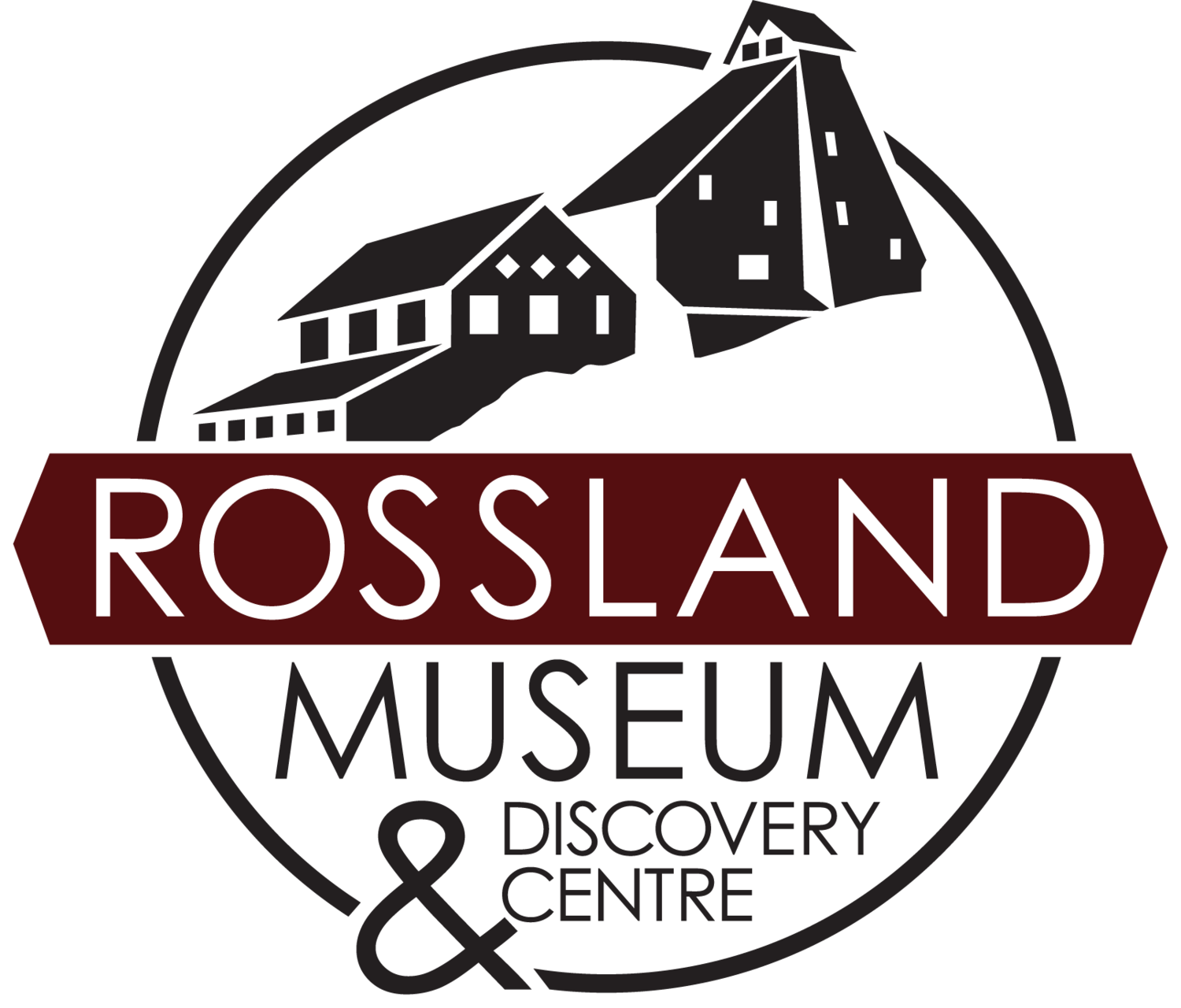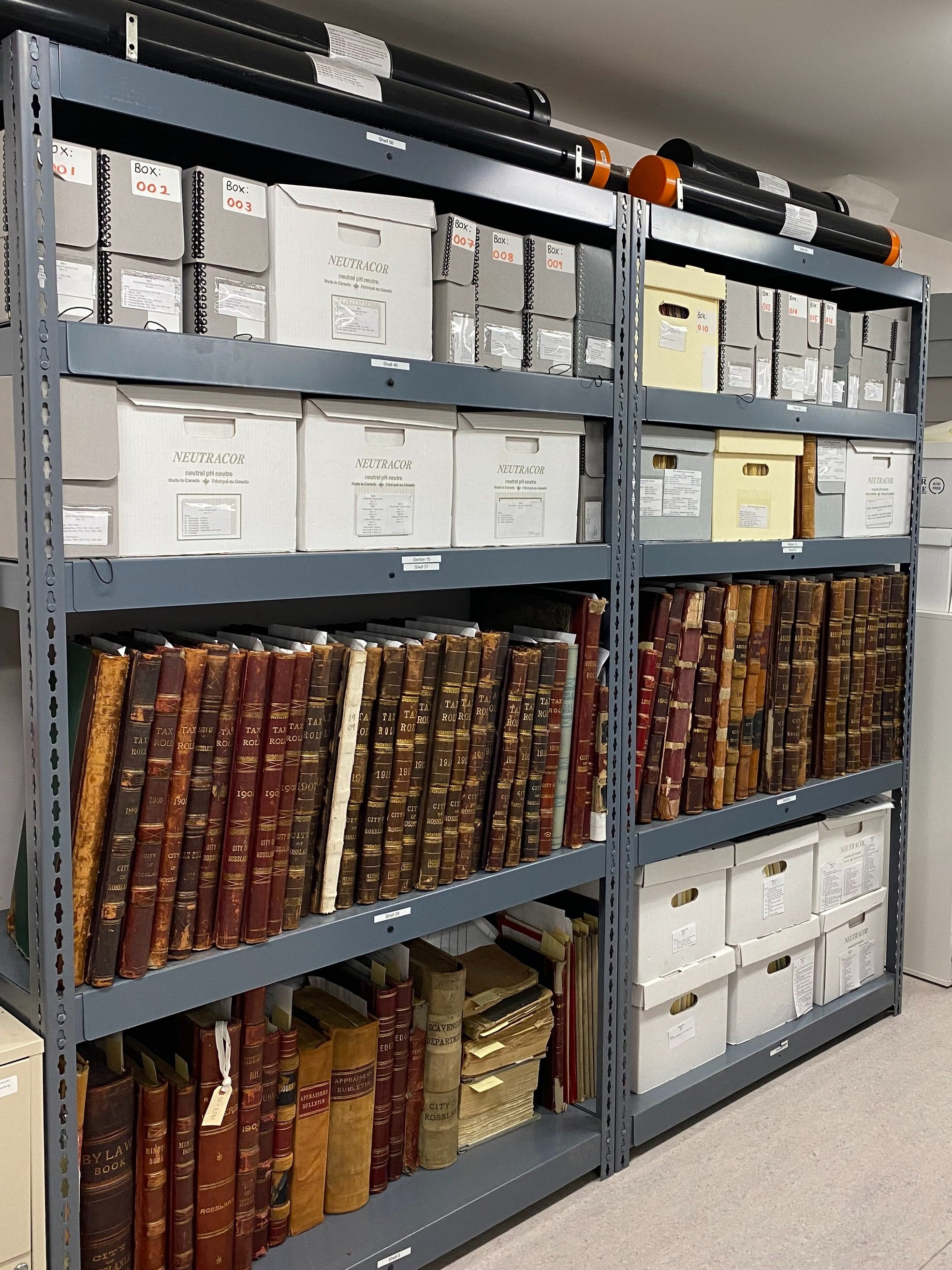Collections
Mission Statement
The Rossland Museum & Discovery Centre’s mission is to preserve and dynamically present the history & culture of Rossland and area and to inspire and engage the public through virtual and real-life displays that bring our history & culture to life.
To achieve this mission, the Museum is committed to maintaining professional standards and best practices in the stewardship of its collection. The Museum’s collections exist to provide a basis for its exhibition, public and educational programs, for research and study, for special lectures and symposia, and for the cultural and educational enrichment of its visitors and the community as a whole.
Collection Types:
The Permanent Collection:
The Permanent Collection includes all items, both object and archival (tangible and intangible) for which the Museum has ownership and responsibility. These items are assigned an accession number, and for which records are kept. The Museum shall pursue, through donation or bequest, objects and records that contribute significantly to the Museum’s collection and that possess the visual integrity and physical condition necessary to be incorporated into the Museum’s exhibition program.
The Education Collection:
Objects in the Education Collection may be obtained through gift or bequest or purchased through funds allocated for educational purposes. Items in this collection will not be assigned an accession number, but they will be included in collections records separate from the Permanent Collection. These collections may lack historical context or may be duplicates or replicas of objects in the Permanent Collection. These collections may be used for RMDC education/display programs or at the discretion of the Collections Manager.
The Research Collection:
Objects in the Research Collection may be obtained through gift or bequest. Items in this collection will not be assigned an accession number, but an inventory of Research Collection material will be maintained separately from the Permanent and Education Collections. This collection will consist of duplicates (including photographs), non-archival material (newspapers, essays, magazines), and reference books on a wide variety of subject matter that support internal and external research projects at the Museum.
Scope of the Collections
The Permanent Collection largely consists of the mining, skiing, and the social history of Rossland and area as well as a large geological specimen collection. The collection also touches upon areas of power generation, commerce, transportation, agriculture, sports, and more.
The Museum’s primary objectives of collecting are twofold. First to preserve, interpret, exhibit, and educate the Museum’s public about the rich history of Rossland. The second is to have available information and resources, as well as have qualified staff to support the Museum’s role as a research centre where researchers can access archival material and artifacts to support their investigations.
Subject Matter
The RMDC shall collect objects that reflect the constantly changing cultural landscape in Rossland, beginning with human occupation through to the present day.
From Fraternal Orders to Sports Teams our collection covers it all!
The primary focus includes:
Pre-settlement, natural, and continued Indigenous history of the Rossland area (see 7.0 Indigenous Collections & Repatriation).
The establishment and ongoing development of the City of Rossland and its residents including the political, economic, industrial, social, sport, and cultural history.
Hard rock mining in the Kootenay area with a specific concentration on the Rossland Mines.
Skiing development and history through to the present day.
The geological, paleontological, and natural histories of the region are important elements to the context of Rossland history.
The scope can include information from the Cominco-Teck smelter located in Trail when it relates to mining in Rossland or Rossland residents.
The Museum may, when staff resources allow, collect oral histories related to the above-mentioned mandate.
Geographic Region
The Museum’s collections shall be focused on the townsite of Rossland and its immediate surrounding area of the Rossland Range. It also focuses on the geological environment surrounding the Rossland area and may expand wide enough to cover Southeastern BC and northern Washington geology.
Items may be collected if they are proven to inform the growth and development of the Rossland area and its contribution to British Columbia or Canada as a whole. Due to the limited size of the collection area, the Museum places a high priority on making selected additions to existing collections’ areas of focus rather than creating an excessively broad, generalist collection.
Time Period
The Museum’s collection is not focused on any concrete time frame, but all acquisitions acquired for the Museum’s collections must focus and strictly follow the Museum’s objectives, statement of purpose, and interpretive themes while fitting within the Museum’s mission statement.
Donor John Greene with his toy crane
Duplicates
Surplus items that are duplicates of items already in the collection will not be accepted unless they are of superior condition, have additional intrinsic value relevant to the Museum’s scope, or assist in telling the history of the area (e.g. where multiples are required for exhibition context). In the case of the potential item being of superior condition, the original collection item may be considered for deaccessioning. Duplicates may also be considered for the Education or Research Collection.
Donor Neil Daly with Mr. Esling’s cane
Donating to the Collection
The Rossland Museum & Discovery Centre collects new artifacts and documents year-round.
If the item(s) do not meet the above requirements, the item(s) will be unable to accept the donation.
If the item(s)meet the above requirements, the Collections Manager will ask you to bring the objects to the museum. The item(s) will be reviewed (sometimes by the Collection Committee). If approved, you will complete Deed of Gift form and the object will enter either the Permanent, Education, or Research collection depending on the verdicts of the Collections Manager and the Collection Committee.
Please contact our Collections Manager at artifacts@ rosslandmuseum.ca for more info.






